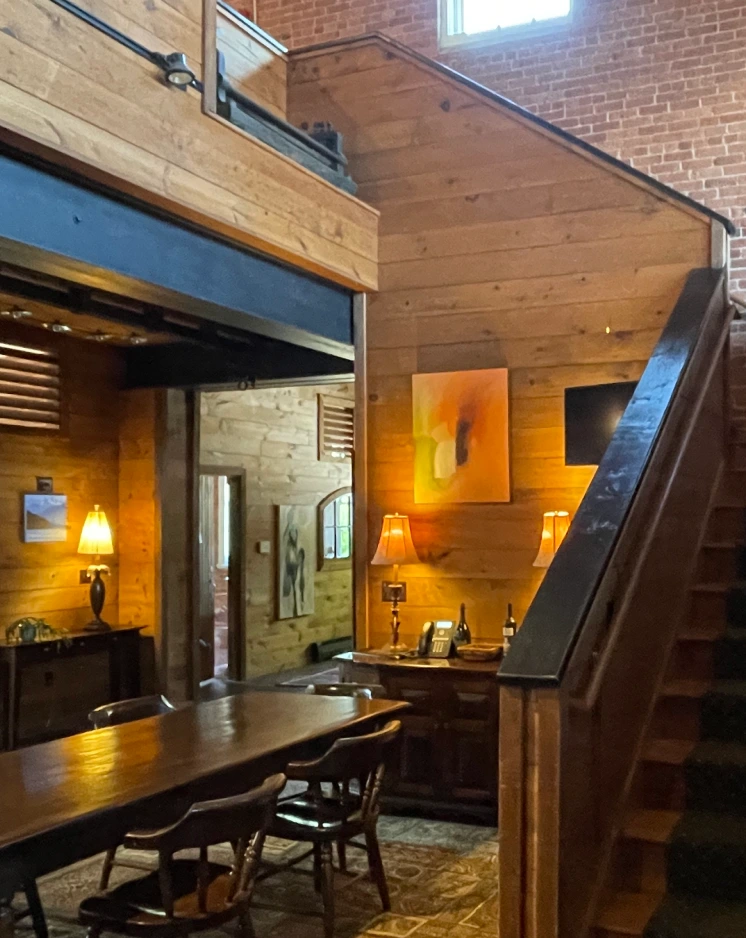
Comparison: Drupal, WordPress, and ExpressionEngine
Dating back to 2009 or so, we've been committed to building our clients' websites using the ExpressionEngine CMS.
Very often, we are asked by our clients to discuss the reasons for our recommendation, especially when there are a handful of much more well-known options available. Among these, of course, are WordPress and Drupal. While each has it own unique strengths, we feel that for our clients, who often require a combination of flexibility, security, and professionalism, ExpressionEngine consistently shines brightest. Let's take a look at these three options and compare them, based on our 14 years of using all three platforms.
Origins and Footprint
- WordPress: Kickstarted in 2003, WordPress's journey from a blogging tool to a global CMS force is impressive, but its mass appeal sometimes results in generic solutions.
- Drupal: A powerful player since 2001, Drupal's open-source framework appeals to those with a technical bent. Yet, its complexity can be daunting for "regular" users like marketing professionals and small business owners.
- ExpressionEngine: Launched in 2002, ExpressionEngine might not boast the user numbers of WordPress or Drupal but compensates with unmatched quality and a user-focused approach.
User Experience and Adaptability
- WordPress: A beginner's darling due to its simple dashboard, but special features often require a multitude of plugins.
- Drupal: Its robust nature is revered by developers, but its steep learning curve can deter many.
- ExpressionEngine: Strikes a harmonious balance. While there's a learning curve, it's rewarding, leading users to an intuitive, powerful platform that marries simplicity with depth.
Customization Landscape
- WordPress: Heavy reliance on third-party themes and plugins, which can lead to compatibility woes and security issues.
- Drupal: Offers modular features, but achieving the desired functionality can sometimes feel like assembling a jigsaw puzzle.
- ExpressionEngine: Expressive by nature. With intrinsic flexibility, users can craft unique digital experiences without excessive add-ons or modules, ensuring a smoother and cleaner end result.
Security Infrastructure
- WordPress: Its ubiquity makes it an attractive target for cyber mischief. Security is often contingent on user vigilance with updates. Oftentimes, security flaws stem from the use of shaky plugins. Ironically, one of the most popular solutions to this: another (security) plugin. [Google News search for "WordPress Hack": 3,410 results]
- Drupal: While known for robust security, it demands technical proficiency to keep things airtight. [Google news search for "Drupal Hack": 40 results]
- ExpressionEngine: Here, security isn’t an afterthought, but a foundation. With a dedicated team ensuring stringent protocols and fewer vulnerabilities due to its professional user demographic, it's a veritable digital fortress. [Google news search for "ExpressionEngine Hack": 0 results]
Cost-effectiveness and ROI
- WordPress: Initially free, but costs for plugins, themes, and potential security patches can accumulate.
- Drupal: Open-source but can incur expenses in the form of custom development and modules.
- ExpressionEngine: While there's upfront pricing, the investment yields dividends in reliability, advanced features, and peace of mind—especially for critical web projects.
Support and Fellowship
- WordPress: Massive community, but finding specialized, expert guidance can be akin to finding a needle in a haystack.
- Drupal: A dedicated community that leans towards the technical side. Good support, especially for developers.
- ExpressionEngine: Where quality meets dedication. The close-knit ExpressionEngine community, bolstered by official forums and expert-led documentation, provides pinpoint solutions and knowledge sharing.
Final Comparison: Visual Flexibility
Our heritage is rooted in both design and development, and if I'm being honest about it, we probably have more design DNA than development. As such, being able to control the look and feel of our sites without needing to think about the CMS and what affect it might have on the design is crucial.
Perhaps the greatest –and most-overlooked– feature EE boasts is its out-of-the-way approach to how the CMS works. With most CMS options, designers and developers are forced to keep how things are set up by default in the back of their minds. They need to make decisions about how to set things up based on the system's default settings, because a base WordPress install comes with so much stuff already in place.
Let's compare WordPress and Drupal to ExpressionEngine to understand the difference.
With WordPress (and Drupal), a developer must begin their work with a default theme. This means that, before a single line of code is written, the developer has to operate within an approach that includes someone else's assumptions about how to set things up. When you undertake the famous "Five Minute Install," you're installing a collection of template files onto your web server and working from there. You'll already have PHP files, HTML templates, CSS, JavaScript, and more. Your next step: try to implement your custom design on top of someone else's website. By contrast, with EE, the CMS stays out of the way--you only use ExpressionEngine tags when you need to. In short, the CMS is inserted into the design templates--instead of the other way around.
While all the other items are very important (security, support, etc.), the visual flexibility element is the deal-maker for us.
In the panorama of CMS options, while WordPress and Drupal have their niches and serve them well, ExpressionEngine emerges as the beacon for those who prioritize a seamless blend of user-friendliness, customizability, and rock-solid security. If you're aiming for a distinctive, robust, and hassle-free digital platform, your compass should point towards ExpressionEngine.
Drop us a line if you'd like to chat some more about ExpressionEngine.

